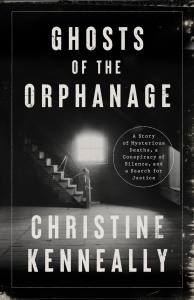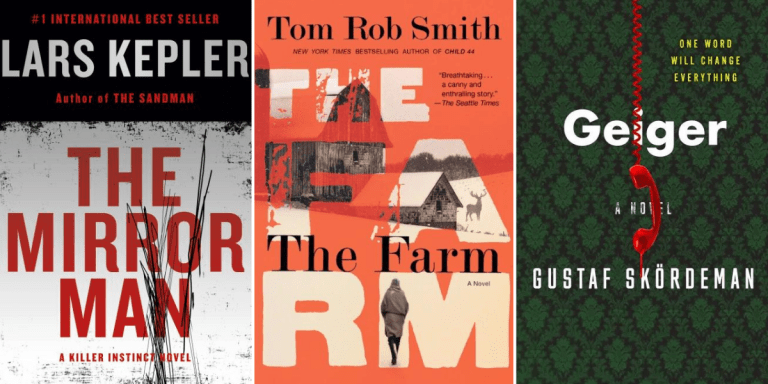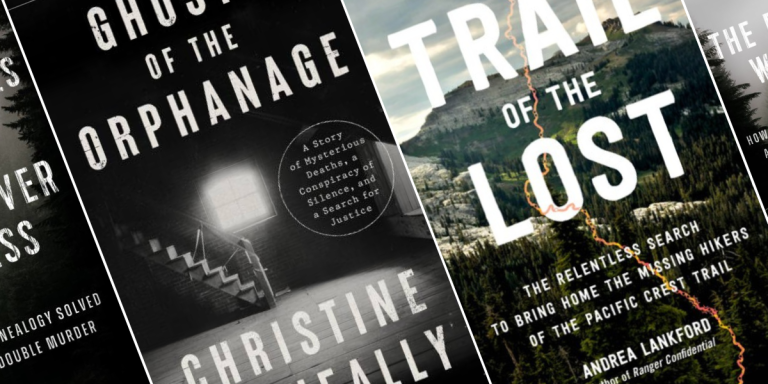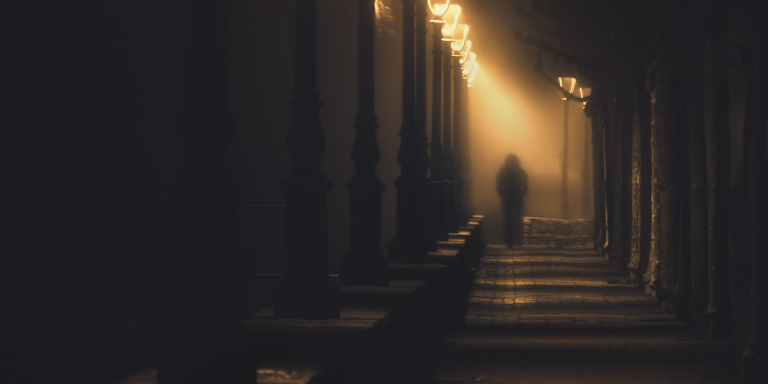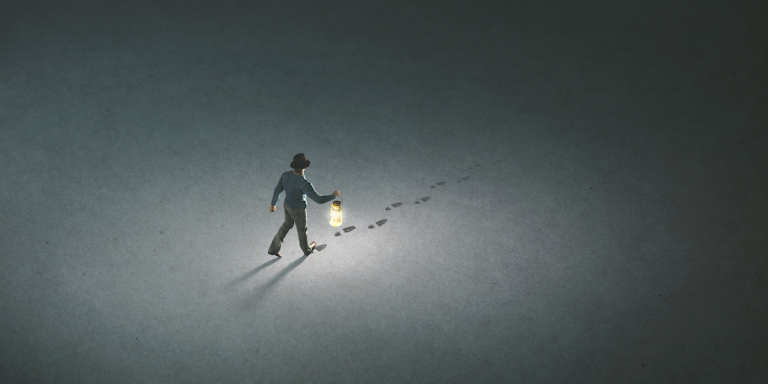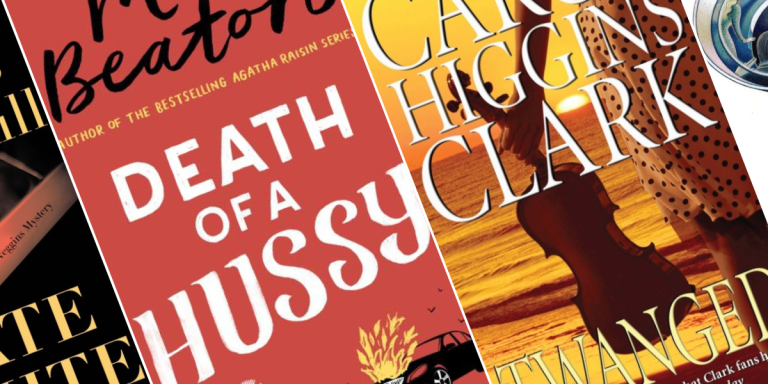Revisiting the Works That Influenced the Nonfiction Murder Mystery ‘Ghosts of the Orphanage’
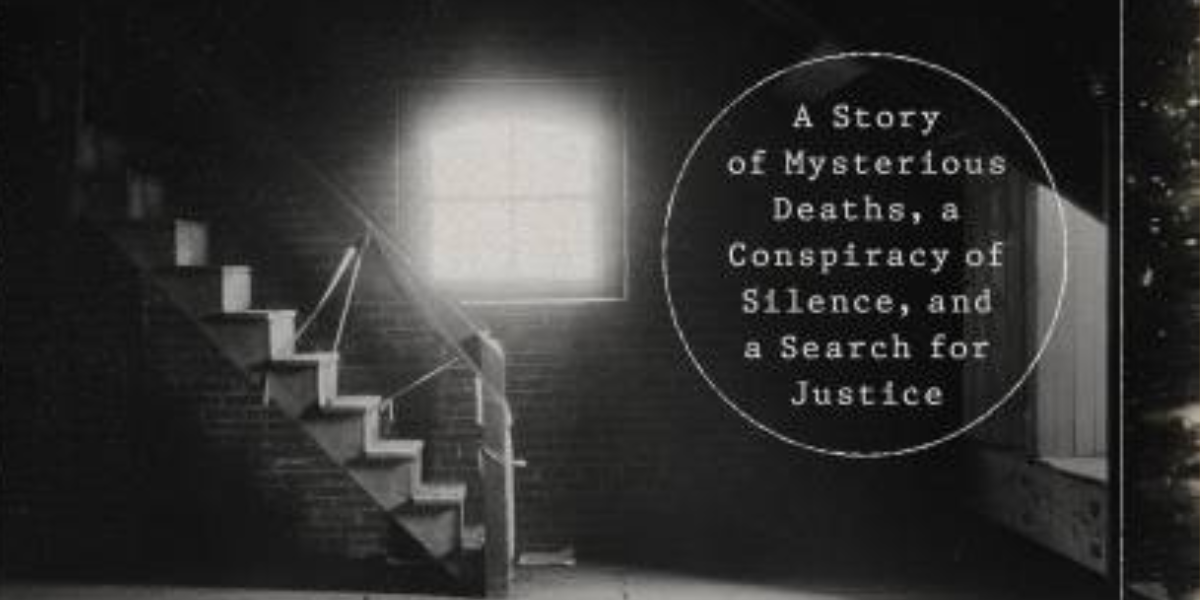 Ghosts of the Orphanage took me around the world, led me into conversation with all sorts of people, and it challenged me as a human being in ways I never imagined. The reporting journey for the book was dramatic, horrifying, and moving. It took years to gather all the puzzle pieces, to assemble them into a larger whole, and to slowly weave together all the stories of the children who spent time in a 20th century orphanage, and the ghosts that some of those children left behind.
Ghosts of the Orphanage took me around the world, led me into conversation with all sorts of people, and it challenged me as a human being in ways I never imagined. The reporting journey for the book was dramatic, horrifying, and moving. It took years to gather all the puzzle pieces, to assemble them into a larger whole, and to slowly weave together all the stories of the children who spent time in a 20th century orphanage, and the ghosts that some of those children left behind.
Like nothing else that I have written before, Ghosts prompted me to revisit all the disparate genres and styles of writing that I have loved all my life. When I was reflecting on structure, or musing about character, or thinking about the million different ways that way one thing leads to another in a story, I reached for writers that I admired. Ghosts of the Orphanage is a nonfiction murder mystery, so I reread some of my favourite journalists. The story in Ghosts follows a huge historic arc, so I looked especially at the writers who weave close-up narratives into broader social change. It’s also a dark fairy tale, a small doorway that opens into a vast other world. That sent me back to some of the children’s book authors I have read, both as a child and as a mother to my children. Of course, Ghosts is also about the arcane, powerful, grim and funny experience of being catholic, so I reached for one of the funniest memoirists I know.
Lawrence Wright is an absolutely fantastic storyteller, but the quality I most love when I reach for one of his books, is his exquisitely meticulous nature. I could probably write pages analysing the way that Wright conveys the precision and care that he brings to both his research and his writing. No doubt it’s easier to just reach for something he has written. It only takes a few pages for a reader to feel that they are in the hands of someone with great integrity and the endurance necessary to apply it to every tiny bit of information he considers. My favorite Wright book is Going Clear: Scientology, Hollywood, and the Prison of Belief. It’s a story about depravity, control and undue influence, with a riveting and horrifying chapter on—yes—taxes. It’s a hard book to put down.
To all of his writing, Grann brings the highest form of the storyteller’s skill and an addictive taste for adventure. His book, The Lost City of Z: A Tale of Deadly Obsession in the Amazon was a fantastic exploration of human folly, told via Grann’s own retracing of the footsteps of an early adventurer. Killers of the Flower Moon includes all the same intense research, evocative world-building, and vivid characterisation. It’s also a deeply moving book that will change everyone who reads it. It tells the story of the wealth of the Osage Indians and the despicable humans who sought to take it from them. It’s also a book about the way that crimes and misdeeds are covered up not just by the criminals who commit them, but by the community around them, and by the passing of time. It’s a pleasure to experience the detective work that Grann undertakes.
Richard Rhodes is known to most people for his Pulitzer Prize winning opus, The Making of the Atomic Bomb. The book is famous for its close-up narrative history of one of the world’s epic stories, and for the remarkable facility with which Rhodes tells compelling human tales while explaining science. As a model, the book is a marvel. However, I want to call attention to two other Rhode’s books from his lengthy catalogue. Rhodes wrote A Hole in the World: An American Boyhood about his experience at the hands of an abusive stepmother, his time in a twentieth century childcare institution, and the beloved brother who saved him. Rhodes’ experience of the institution was quite different to that of the many children in catholic orphanages at the same time, so for people who are interested in the topic, the book provides another perspective, and is a fascinating and moving read. But the Rhodes book I have picked up and again is his wonderful How to Write. It’s clear, practical, reassuring, and inspiring, a masterclass.
Carreyrou’s book was a searing expose of the fraud at the heart of Elizabeth Holmes’ Theranos and the murky cult of personality that shaped the culture of her organisation. Indeed the book was so brilliant and so necessary, I’ve lost count of the movies, documentaries, and TV series that have since been made about the company and its backers. Carreryou is of course an incredible reporter. The story wasn’t just sitting there, waiting for someone to come along and write it, he tracked people down, put pieces together, dug up information that was hidden. It’s interesting to imagine exactly how long Theranos could have gone on for without Carreyrou’s hard work—quite some time, I suspect. For that reason, Carreyrou’s book is all the more impressive as a model of the genre. It’s so economical and so well-paced. He says everything he needs to weave a powerful story, but to do that, he must have gathered a mountain of information and then in a very disciplined way left a lot on the cutting room floor.
Pullman is of course a novelist, not a journalist, and his books are written for children. They are also exceptionally beautiful, intensely rich novels about love, loss, identity, evil, totalitarianism, and adventure. I found myself reaching for a number of young adult books while I was writing Ghosts, such as The Book of Dust, a connected series to Pullman’s Dark Materials trilogy. I wanted to understand how Pullman so effectively inhabits the minds of children and young people, how he conveys the limitations of age without being patronising. I am also a great admirer of Pullman’s bewitching skill with landscape and geography. Reading him reminded me to think about beauty and place while I was writing.
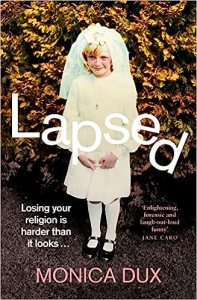 Lapsed
Lapsed
Finally, there is Lapsed: Losing Your Religion is Harder than it Looks by Monica Dux. No, Ghosts of the Orphanage isn’t funny, although there are some funny moments in it. Yet there is so much about the experience of growing up catholic that is hilarious. Monica Dux, author of Lapsed, wrote about what it was like to grow up catholic in Sydney, Australia, and about her adult journey in leaving the church. It was a total delight to read and reread the book (Dux writes like David Sedaris and David Rakoff), and it reminded me of the genuine humility of ordinary catholics. Perhaps it shouldn’t be surprising that an Australian memoir of childhood could be so recognisable to and relatable for Americans. The experience of being raised catholic is so common after all. But I think Dux’s ability to pin down the ubiquitous but often odd experience has as much to do with her insight and skill, as it does with being a member of this ancient diaspora. She absolutely nails the humility and the pomposity of catholic education, the ubiquitous phase, for girls at least, of entertaining the idea of becoming a nun, as well as the joy of liturgical dance. Dux’s book wasn’t officially published in the US but it is available on Amazon. It made me laugh out loud many times.
Discover the Books
For much of the twentieth century, a series of terrible events—abuse, both physical and psychological, and even deaths—took places inside orphanages. The survivors have been trying to tell their astonishing stories for a long time, but disbelief, secrecy, and trauma have kept them from breaking through. For ten years, Christine Kenneally has been on a quest to uncover the harrowing truth.
Centering her story on St. Joseph’s, a Catholic orphanage in Vermont, Kenneally has written a stunning account of a series of crimes and abuses. But her work is not confined to one place. Following clues that take her into the darkened corners of several institutions across the globe, she finds a trail of terrifying stories and a courageous group of survivors who are seeking justice. Ghosts of the Orphanage is an incredible true crime story and a reckoning with a past that has stayed buried for too long, with tragic consequences.
By clicking 'Sign Up,' I acknowledge that I have read and agree to Hachette Book Group’s Privacy Policy and Terms of Use
What to Read Next
